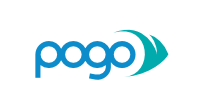FAQs
Here we answer some of the most common questions asked by potential trainees.
If your queries are not addressed here, please use the contact form to get in touch.
I. Fellowship questions
This fellowship program is open to early career scientists, technicians, postgraduate students (PhD or MSc) and Post-doctoral Fellows involved in oceanographic work at centres in developing countries and countries with economies in transition.
Calls for applications will be issued for fellowships associated with specific cruises. See list of current opportunities here. Fellowship applications generally require submission of an application form, CV and reference letter. There will also be periodic calls issued to PIs/institutions to propose to host a designated fellow during one of their cruises. If you already have an existing collaboration or are aware of a cruise that has a spare berth and a potential host supervisor, your collaborator can apply to OTP for funding to provide you with a shipboard training fellowship (see here for more information).
Generally candidates are notified within 2 months of the application deadline.
The fellowship will provide:
- the costs of a round-trip ticket between the home institute of the trainee and the host country;
- travel in the host country between the arrival airport and the host institution;
- subsistence allowance for up to two months’ stay in the host country depending on the particulars of the proposed training;
- travel and accommodation to join the ship (may involve international flight);
- seafaring medical certification and sea survival course (if required).
What is not covered:
- expenses incurred by the fellow in his/her own nation (domestic travel, visa costs, personal insurance etc.)
- bench fees normally charged by the host institution (these will normally be waived by the host institution)
- salary.
It varies according to each opportunity. Usually, cruises are between 2 and 6 weeks at sea. In some cases, the fellowship may include a one-month visit to the host institution prior to the cruise and/or a further month at the host institution after the cruise.
II. Research cruise questions
The requirements are the same as for all other scientists participating in the cruise, and are determined by the ship operator, therefore will vary between ships/countries. For UK ships, participants are required to hold a valid seafaring medical certificate (ENG1), a “dental fitness” certificate and a “Personal Survival Techniques” certificate. The ENG1 and PST certification can usually be arranged in the host country, prior to joining the ship.
The ships will generally provide all catering (3 meals per day + tea/coffee-making facilities and snacks). The cost will be covered by the cruise budget. If you have special dietary requirements, the ship may be able to cater for these but it is recommended that you check this in advance with your supervisor. Most ships offer the possibility of purchasing “bonded” items for personal use, such as sweets, chocolate, cigarettes, toothpaste, shower gel etc. Ships will either take cash or use a “cashless” system that can be topped up via credit/debit card.
For working on-board, you will need to wear adequate safety and cold-weather gear, as appropriate (e.g. hard hat, steel-toe capped boots, immersion suit). You will not be required to purchase this in advance or bring it with you from your home country. Your host supervisor should ensure that you are provided with the adequate Personal Protective Equipment (PPE) during the cruise preparation phase of the fellowship.
All you need to bring with you is comfortable, sensible and weather-appropriate clothes for working on deck/in the lab (if you have one it is advisable to bring a lab coat), and additional smart/casual clothing to wear inside the ship (e.g. for meals in the mess room). Different ships have different dress codes for mealtimes so you are advised to check with your supervisor before you travel. Washing machines are generally available for us on the ships so you don’t need to bring 6 weeks’ worth of clothes!
Depending on where the cruise is going and which ship it is, there may or may not be a doctor on-board. For UK ships, there is only a doctor present if the ship is going to very high latitudes (e.g. >60 degrees). Medical treatment on board can be fairly basic –i.e. at First Aid level. The Ship’s Deck Officers are all trained in First Aid and the ships have extensive First Aid facilities. In case of a medical emergency, the ship will either steam to the closest port or call emergency services who will send a helicopter to air-lift the patient to shore. This is why it is essential that cruise participants are certified medically fit before joining the cruise. We ask that you check with your parent and/or host institution if they will provide insurance cover for the duration of your fellowship. If not it is highly recommended that you take out adequate travel insurance (this will be at your own expense).





